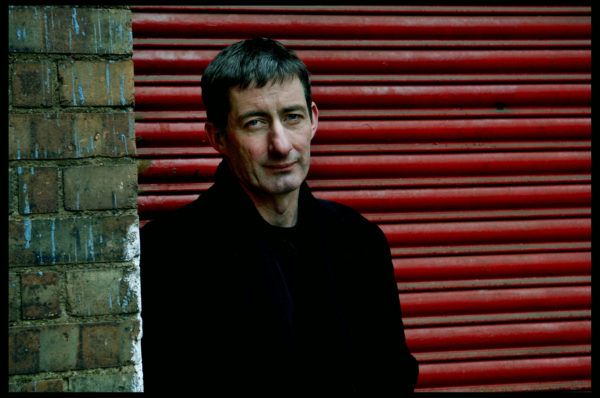
“The Negro sits without moving. In the execution shed the apparatus is being made ready. The hood. The rope. The pinnings.”
These chilling opening lines set the tone of The Vogue, the latest novel from acclaimed author and Trinity alumnus Eoin McNamee. From the war-torn 1940s to the early 2000s, The Vogue is about discrimination and vengeance. But, McNamee is quick to emphasise, it is also a story of childhood and loss, of love and desire and the consequences of falling for the “wrong” person.
In The Vogue, McNamee returns to a childhood haunt: an abandoned aerodrome not far from his parent’s house in Kilkeel, Co Down. Clearly, it left an indelible impression: “Tens of thousands of troops went through it, particularly in the lead up to D-Day, and now it’s this desolate, haunted landscape.” Incredibly, many of these airman stayed in McNamee’s childhood home (“long before my parents bought it”) and their names are still written on the attic rafters. There is even, McNamee remarks, a poster of the then-adored American actress Betty Grable pinned to the attic door. “Those ghost soldiers always haunted me”, McNamee confides.
The Vogue is a somewhat unusual addition to McNamee’s oeuvre, in that it is not explicitly based on a real-life event. Whereas almost all of his previous novels blend fiction and fact, The Vogue “felt like a more invented story”, McNamee explains. “For once … rather than have the architecture of a real story, I let the story lead me, and the characters lead me where they wanted to go.”
The idea behind the novel began, surprisingly, when McNamee briefly wrote for a serial drama. It didn’t go so well. “The whole thing was mechanical and very manipulative and I really rebelled against it. I loathed it … but it got me interested in the idea of stories as something magical, something more than a story editor laying down the guidelines.” This set McNamee on a course to explore what he terms the “mystery of story”. He clarifies with a favourite quote (“which I overuse”) by the painter Francis Bacon: “The job of the artist is always to deepen the mystery.”
The Vogue also targets the question of race and racial inequality, an issue that festered like a rot in the ranks of the US army during World War II. It is a well-documented fact, McNamee says, that black and hispanic soldiers were hanged while their white colleagues were given muted sentences, despite having committed the same crime. And that’s just one example.
“The odd thing about it”, McNamee continues, “is that these are stories about things which have passed”. Yet McNamee underlines that these issues are anything but “retro”. Never before has it been so necessary, McNamee believes, to write these truths: “You used to think that most people thought the way I do – which is liberal – and then you start to look around you and realise that the ranks are thinning a bit.”
McNamee has always written against the tide. He recalls his debut novel, Resurrection Man, as a “counter narrative” that did anything but shy away from reality. He reminisces: “At the time of the peace process, the whole narrative was going in one direction, the whole river of self-praise and self-forgiveness by all the parties involved was going one way, and I was going the other way, thinking, ‘hang on a second, what about…?’”
This approach was not appreciated, especially not when Resurrection Man was made into a film. McNamee remembers the “enormous backlash”, saying, “we did feel, myself and the director, that we’d been run over by a truck”. Yet backlash has always made McNamee “double down and be more obstinate” and – he laughs – “more inclined to get myself in trouble!” Things have thankfully come on since then, as McNamee acknowledges: “I think I can now come in from the cold.”
“What you’re trying to do”, McNamee says thoughtfully, “is find a lyric way of telling things which are intensely political issues”. He mentions a story he was once told, of lights seen from an airplane flying over the coast of Co Down: “It turns out they were head torches worn by slave labour. They had been shipped in from Romania, [and] were gathering shellfish.” They had no food, no shelter, no proper clothing. “But, there was something about that chain of lights in the dark that caught my imagination … essentially, you are searching for the beauty in desolate places to elaborate the stories you want to tell.”
We finish our conversation talking about Trinity, where McNamee studied law. He remembers his Trinity days as being both “a joy” as well as “a challenge”. Then, after graduating, he knew it might be then or never: “I did not want to end up, at the stage I am now, wondering if I could have done it – could I really write.”
And, finally, any advice for the budding student writer? McNamee’s philosophy is as beautiful as it is straightforward: read “as voraciously as possible” and finish what you start, for “if you finish it, you have put something into the world ー no matter how imperfect ー that was never there before, which is really the function of art”.
Eoin McNamee’s newest novel, The Vogue, is published by Faber and Faber.






